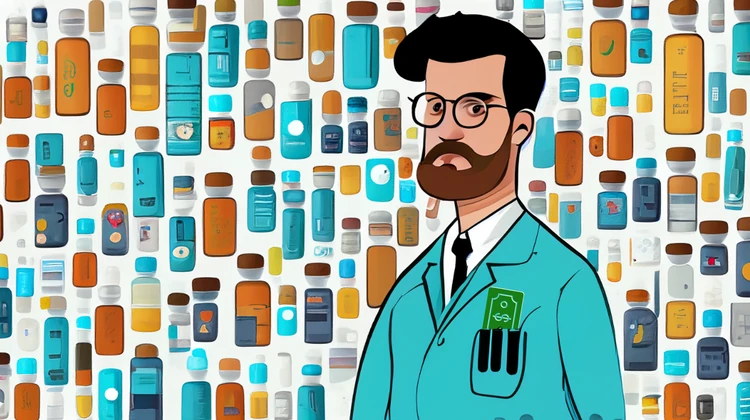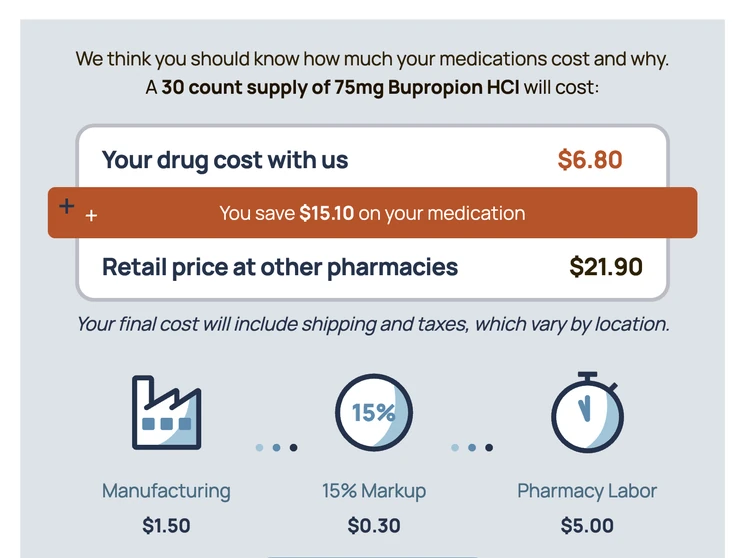The millions who take ED meds have cause to celebrate

In a landscape where the cost of medications can be prohibitively high and the Federal Trade Commission (FTC)scrutinizing Pharmacy Benefit Managers (PBM) over pricing structures and high markups like it never has before, Mark Cuban's Cost Plus Drugs (CPD) is making significant strides in revolutionizing the pharmaceutical industry. It may well be the tipping point consumers have been waiting for.
Their core concept revolves around a "cost-plus" pricing model. They do it by removing middlemen/PBMs from the supply chain and charge a standard 15% markup on every drug, plus a $9 dispensing and processing fee. Simple as that.
And far more transparent. When you order a medication from Cost Plus Drugs, you are shown exactly how much your medication costs and whos getting what piece of the pie, unlike traditional pharmacies. Here's an example:

Exponential growth
Cuban, CPDs founder, believes the industry is ripe for disruption and is converting hospital chains like theres no tomorrow. For example, Community Health Systems (CHS), a major hospital operator, recently announced that all 71 of its hospitals across 15 states will now use Cost Plus Drugs' wholesale services.
This partnership allows CHS to purchase a broader range of medications, including antibiotics and nausea medications, at significantly reduced prices. This move isnt only good for CHS, which will save hundreds of thousands of dollars, but anyone who uses CHS services will also benefit.
Additionally, the company has gotten CPD integrated into thousands of grocery store pharmacies. Theres Food Lion, Giant Food, Hannaford, the Kroger family (Fred Meyer, Frys, et al), Albertsons, and Stop & Shop. The deal allows customers of Team Cuban Card to use the card at pharmacies in those stores.
Is CPD the PBM dragon slayer we've been waiting for? Monique M. Whitney, executive director of Pharmacists United for Truth and Transparency, thinks CPD is making a difference, but dragon slayer may be going too far.
While probably not the PBM dragon slayer -- the vertically integrated PBMs are more like the hydra of Greek mythology, with twoheads springing up for every single head removed -- Mark Cuban Cost Plus Drugs is demonstrating that consumers don't have to put up with the artificially inflated drug costs or cost-share games inflicted by their health insurers, Whitney told ConsumerAffairs.
The cost-plus model isn't new to pharmacy, but by turning his considerable spotlight on PBM profiteering practices, Mark Cuban is empowering the market to look for alternatives to the traditional Big PBM offerings.
Most consumers win, but some dont
While CPD boasts significant savings, a recent study suggests a more complex picture. The study found that uninsured patients achieved the greatest benefit, but insured patients with employer-sponsored plans sometimes saved less at CPD compared to their traditional pharmacy benefits. In addition, Medicaid enrollees saw no cost savings according to the study.
Theres also drugs that CPD doesnt carry yet. Insulin is one. So are many of the drugs you see advertised on TV like Ozempic, Rybelsus, Humira, Eliquis, Trulicity, Jardiance, and Keytruda. But, again, thats probably a matter of yet something CPD is no doubt working to shore up.
Parting the sea in a big way
Prices for some medications are beyond what most consumers would consider reasonable, and thats where CPD really proves its worthiness. Beginning last year, Cuban's company began selling generic medications at a price that, in some cases, was more than $10,000 cheaper than their branded counterparts.
Two of those drugs are Penicillamine, which treats rheumatoid arthritis, metal toxicity and cystinuria; and Fingolimod HCI, a multiple sclerosis medication. A 30-count, 250 mg order of Penicillamine goes for $704.90 at CPD vs. $3,194.10 at your typical retail pharmacy; a bottle of 30 Fingolimod HCl 0.5mg capsules can be had at CPD $194.86 vs. $13,067.14 at other retail pharmacies.
In a comparison done by Beckers Hospital Review, there are dozens more where the savings are well into the thousands, too -- includingthe generics for Noxafil, Zyvox, andSyprine.
The millions of men who take Levitra or Viagra would probably be happy with the prices at CPD. They would save $176.80 on their Viagra ($183.60 retail vs. CPDs$6.80). The savings for Vardenafil HCl (the generic for Levitra) is even more impressive. That drug costs $61.10 at CPD vs. $1167.90 at other pharmacies a savings of $1,106.80 .
Photo Credit: Consumer Affairs News Department Images
Posted: 2024-07-10 13:14:48




















